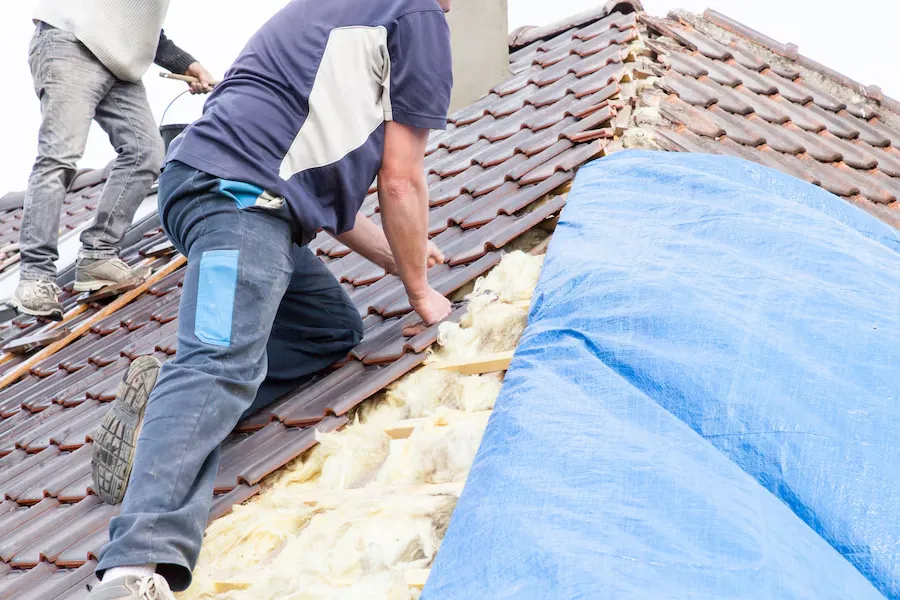
Essential Maintenance Tips for Residential Roofs
Charleston, West Virginia, renowned for its historic charm and coastal beauty, is also known for its challenging weather conditions that can take a toll on residential roofs. To ensure your home remains safe and secure, regular roof maintenance is essential. Here are some expert tips tailored specifically for Charleston's unique climate:
Regular Inspections
Schedule regular inspections at least twice a year, preferably in the spring and fall. Charleston's hot summers and occasional tropical storms can damage roofs, making inspections crucial for catching small issues before they become costly repairs.
Check for Leaks and Water Damage
After heavy rains or storms, inspect your attic and ceilings for signs of leaks or water stains. Addressing these issues promptly can prevent mold growth and structural damage.
Conduct Regular Inspections
Regularly inspect your attic and ceilings after significant weather events, such as heavy rains or storms. Look for signs of water stains, discoloration, or moisture buildup. These could indicate leaks or potential weak points in your roof's structure.
Examine Roofing Materials
Check the condition of your roofing materials, including shingles, tiles, or metal panels. Look for cracked, curled, or missing pieces, as these can create entry points for water. Pay attention to any gaps or deteriorated areas around chimneys, vents, and skylights.
Inspect Flashing and Sealants
Flashing around chimneys, vents, and other roof penetrations is essential for preventing water infiltration. Inspect flashing for signs of damage or deterioration, such as rust, cracks, or loose sections. Ensure that sealants around these areas are intact and provide a watertight seal.
Check Gutters and Downspouts
Proper drainage is crucial in preventing water damage to your roof and home. Clean gutters and downspouts regularly to remove leaves, debris, and sediment that can obstruct water flow. Ensure that gutters are securely attached and sloped correctly to direct water away from the house.
Monitor Attic Ventilation
Improper attic ventilation can lead to moisture buildup, which can contribute to mold growth and structural damage. Check vents and openings in the attic to ensure adequate airflow. Consider installing additional vents if necessary to maintain proper ventilation.
Address Leaks Promptly
If you discover signs of a leak, such as damp spots, water stains, or mold growth, address the issue promptly. Use roofing cement or sealant to patch small leaks temporarily until a professional can assess and repair the damage.
Consult a Professional
For complex roof leaks or extensive water damage, consult a qualified roofing contractor. Professionals have the expertise and equipment to accurately diagnose the source of leaks and provide appropriate repairs or replacements.
Clean Gutters and Downspouts
Charleston's lush greenery means gutters can quickly become clogged with leaves and debris. Clean gutters and downspouts regularly to ensure proper drainage and prevent water backup, which can damage both the roof and the foundation.
Schedule Regular Cleaning
Plan to clean your gutters at least twice a year, ideally in the spring and fall. These seasons typically see a buildup of leaves, twigs, and other debris that can clog gutters and obstruct water flow.
Use Safety Precautions
Before starting, ensure you have a sturdy ladder and safety equipment. Work with a partner if possible, and avoid reaching or overextending to minimize the risk of falls.
Remove Debris
Begin by manually removing larger debris such as leaves and twigs from the gutters. Use a garden trowel or scoop to scoop out debris and deposit it into a bucket or tarp for easy disposal.
Flush Gutters with Water
After removing the visible debris, flush the gutters with a garden hose to clear out remaining dirt and smaller particles. Start from the end opposite the downspout and work toward it, ensuring water flows freely.
Inspect Downspouts
Check downspouts for clogs by running water through them. Use a plumber's snake or a pressure washer on a low setting to dislodge stubborn clogs. Ensure downspouts extend at least 3 feet away from your home's foundation to prevent water from pooling near the structure.
Clean Gutter Guards or Screens
If your gutters are equipped with guards or screens, inspect and clean them as well. Remove any debris and ensure they are securely in place to effectively filter out leaves and prevent clogs.
Check for Damage
While cleaning, inspect gutters and downspouts for signs of damage such as rust, corrosion, or sagging sections. Address these issues promptly to prevent further damage and ensure proper water drainage.
Trim Overhanging Branches
Trees near your home can pose a risk during storms. Trim overhanging branches to prevent them from scraping against the roof or breaking and causing damage.
Repair or Replace Damaged Shingles
High winds common in Charleston can loosen or remove shingles. Replace any missing or damaged shingles promptly to prevent water infiltration and further roof damage.
Inspect and Maintain Flashing
Flashing around chimneys, vents, and skylights can deteriorate over time. Inspect flashing regularly and replace or repair any damaged sections to maintain a watertight seal.
Visual Inspection
Begin by visually inspecting all flashing areas on your roof. This includes around chimneys, vents, skylights, dormers, and any other roof penetrations. Look for signs of wear, such as cracks, rust spots, gaps, or areas where the flashing has pulled away from the surface.
Check Seals
Pay close attention to the seals around flashing. These seals are often made of caulk or roofing cement and can deteriorate over time. Make sure they are intact and not cracked or peeling away.
Secure Loose Flashing
If you notice any loose flashing, secure it back into place using roofing nails or screws designed for the material of your roof. Avoid using adhesives alone, as they may not provide a durable hold in the long run.
Repair or Replace Damaged Flashing
For flashing that shows signs of damage such as rust, corrosion, or significant wear, it may be necessary to repair or replace it. Use appropriate materials and techniques recommended by roofing professionals to ensure a watertight seal.
Clean Debris
Clear any debris such as leaves, dirt, or moss that may have accumulated around the flashing. Accumulated debris can hold moisture and accelerate the deterioration of flashing materials.
Consider Professional Inspection
While you can perform basic inspections yourself, consider hiring a professional roofer for a more thorough inspection at least once a year, especially after severe weather events. Roofing experts have the training and experience to identify potential issues that may not be apparent to the untrained eye.
Consider Professional Roof Cleaning
Charleston's humid climate can lead to algae and moss growth on roofs, which can compromise shingle integrity. Consider professional roof cleaning to remove these growths and extend the lifespan of your roof.
Ensure Proper Ventilation
Good ventilation is essential in Charleston's hot and humid climate to prevent moisture buildup in the attic, which can lead to mold and mildew growth. Check vents and ensure they are clear of debris.
Conclusion
Maintaining your residential roof is essential for preserving the integrity and longevity of your home. By following the tips outlined in this blog, such as regular inspections, prompt repairs, and seasonal maintenance, you can prevent costly damages and ensure your roof continues to protect your family and belongings effectively. Remember, proactive care not only enhances curb appeal but also adds value to your property over time.
For further inquiries or to schedule a professional roof inspection or repair service in Charleston, WV, contact JDB Contracting LLC at 540-599-5862. Our experienced team is dedicated to providing reliable solutions tailored to your roof's specific needs. Don't hesitate to reach out and safeguard your home with expert care today.
©2025 JDB Contracting LLC | All Rights Reserved |



